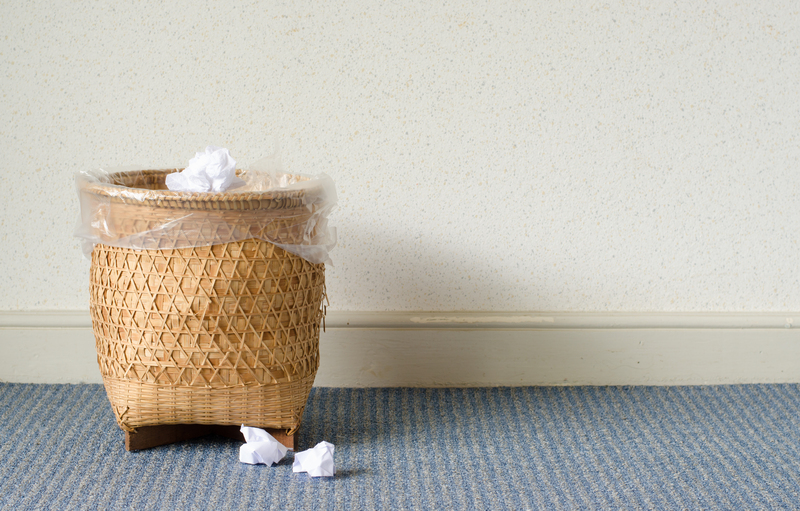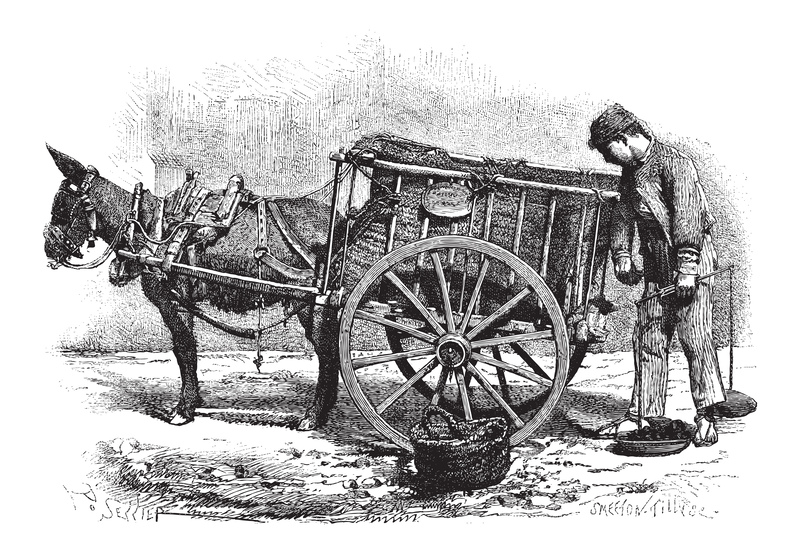Fridge Disposal: A Comprehensive Guide
 Disposing of your old fridge can be a daunting task, but understanding the process can make it much easier. Whether you're upgrading to a new model or simply replacing an old one, proper disposal is essential for both environmental and legal reasons. In this article, we will explore the various methods of fridge disposal, including recycling, donating, and professional services.
Disposing of your old fridge can be a daunting task, but understanding the process can make it much easier. Whether you're upgrading to a new model or simply replacing an old one, proper disposal is essential for both environmental and legal reasons. In this article, we will explore the various methods of fridge disposal, including recycling, donating, and professional services.
When it comes to disposing of a refrigerator, one of the most eco-friendly options is recycling. Refrigerators contain materials like metals, plastics, and refrigerants that can be reclaimed and reused. Recycling not only helps reduce waste but also conserves natural resources. Many local recycling centers accept old fridges, and some even offer pick-up services.
 Before disposing of your fridge, it's important to remove all food items and clean the interior thoroughly. This not only ensures a hygienic disposal process but also makes the appliance more appealing if you plan to donate it. Additionally, take out any detachable parts that can be recycled separately, such as shelves, drawers, and handles.
Before disposing of your fridge, it's important to remove all food items and clean the interior thoroughly. This not only ensures a hygienic disposal process but also makes the appliance more appealing if you plan to donate it. Additionally, take out any detachable parts that can be recycled separately, such as shelves, drawers, and handles.
Another viable option is donating your old refrigerator. Numerous charities and non-profit organizations accept used appliances in good working condition. Donating your fridge not only helps those in need but can also provide you with a tax deduction. Ensure that the recipient organization can handle the delivery or pickup of such a large appliance.
If your old fridge is no longer functional, you might consider selling it for parts. Even non-working refrigerators contain valuable components that can be repurposed or sold to repair shops. This method helps minimize waste and can provide you with some financial return.
 For those who prefer a hassle-free disposal process, professional fridge disposal services are available. These services handle the entire process, from pick-up to recycling, ensuring that your old appliance is disposed of responsibly. While there is usually a fee associated, the convenience and peace of mind can be worth the cost.
For those who prefer a hassle-free disposal process, professional fridge disposal services are available. These services handle the entire process, from pick-up to recycling, ensuring that your old appliance is disposed of responsibly. While there is usually a fee associated, the convenience and peace of mind can be worth the cost.
When choosing a disposal method, consider the size and condition of your refrigerator. Larger models may require special handling, while smaller units might be easier to transport. Additionally, the condition of the fridge—whether it’s still operational or not—can influence your disposal options.
It's also important to be aware of local regulations regarding appliance disposal. Some municipalities have specific guidelines and may even offer free disposal services for large appliances. Failing to comply with these regulations can result in fines or environmental harm.
 Eco-friendly disposal methods are becoming increasingly important as we become more aware of environmental issues. Properly disposing of your fridge ensures that harmful chemicals, such as refrigerants, do not leak into the atmosphere. By choosing recycling or professional disposal services, you contribute to a sustainable environment.
Eco-friendly disposal methods are becoming increasingly important as we become more aware of environmental issues. Properly disposing of your fridge ensures that harmful chemicals, such as refrigerants, do not leak into the atmosphere. By choosing recycling or professional disposal services, you contribute to a sustainable environment.
Before disposing of your refrigerator, make sure to disconnect and safely remove any hazardous materials. This includes unplugging the appliance, removing water lines, and ensuring that refrigerants are properly handled by certified professionals.
Consider the financial incentives for responsible disposal. Some recycling programs offer rebates or incentives for turning in old appliances. Additionally, donating your fridge can qualify you for tax deductions, providing a financial benefit for your environmentally conscious actions.
 In conclusion, disposing of your old fridge can be managed efficiently and responsibly by choosing the right method. Whether you opt for recycling, donating, selling for parts, or using professional services, each option has its own set of benefits. Prioritize eco-friendly and legal disposal practices to contribute positively to the environment and your community.
In conclusion, disposing of your old fridge can be managed efficiently and responsibly by choosing the right method. Whether you opt for recycling, donating, selling for parts, or using professional services, each option has its own set of benefits. Prioritize eco-friendly and legal disposal practices to contribute positively to the environment and your community.







